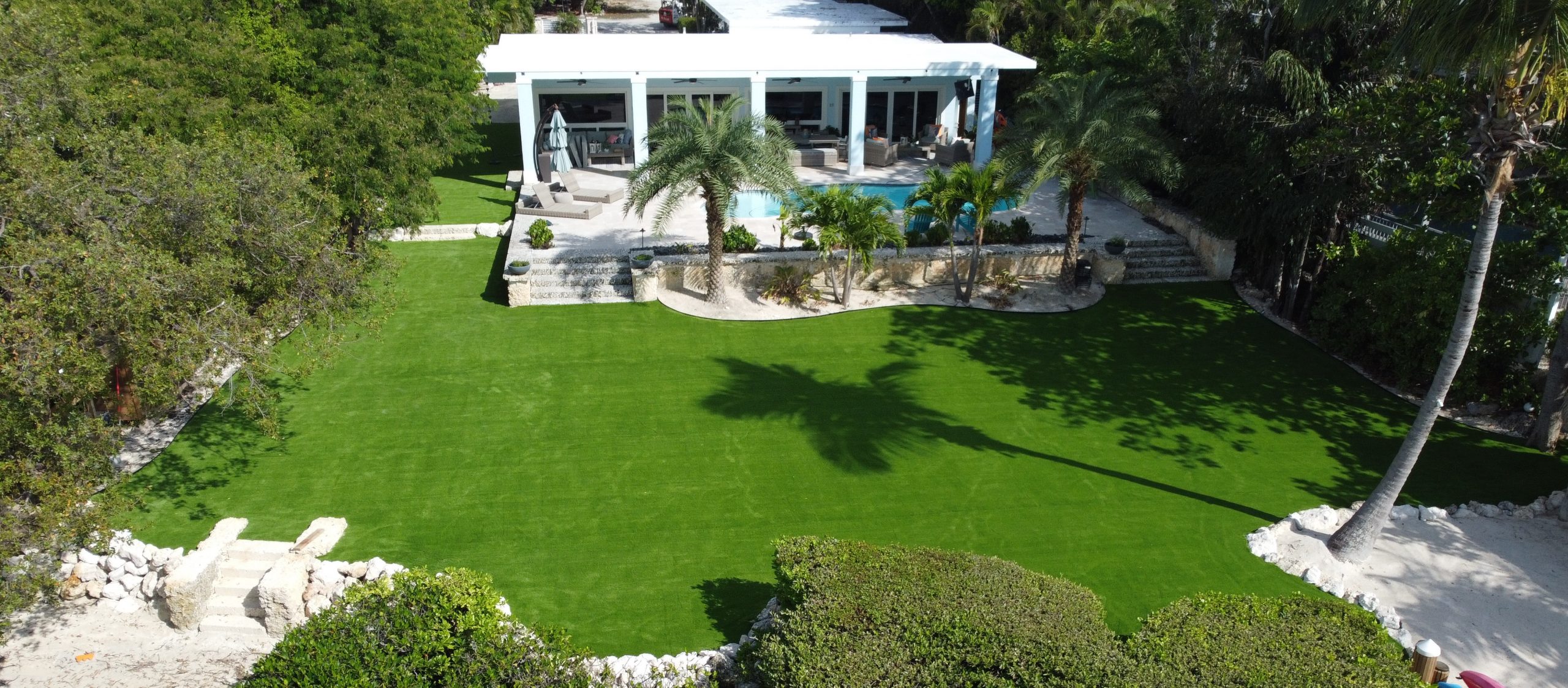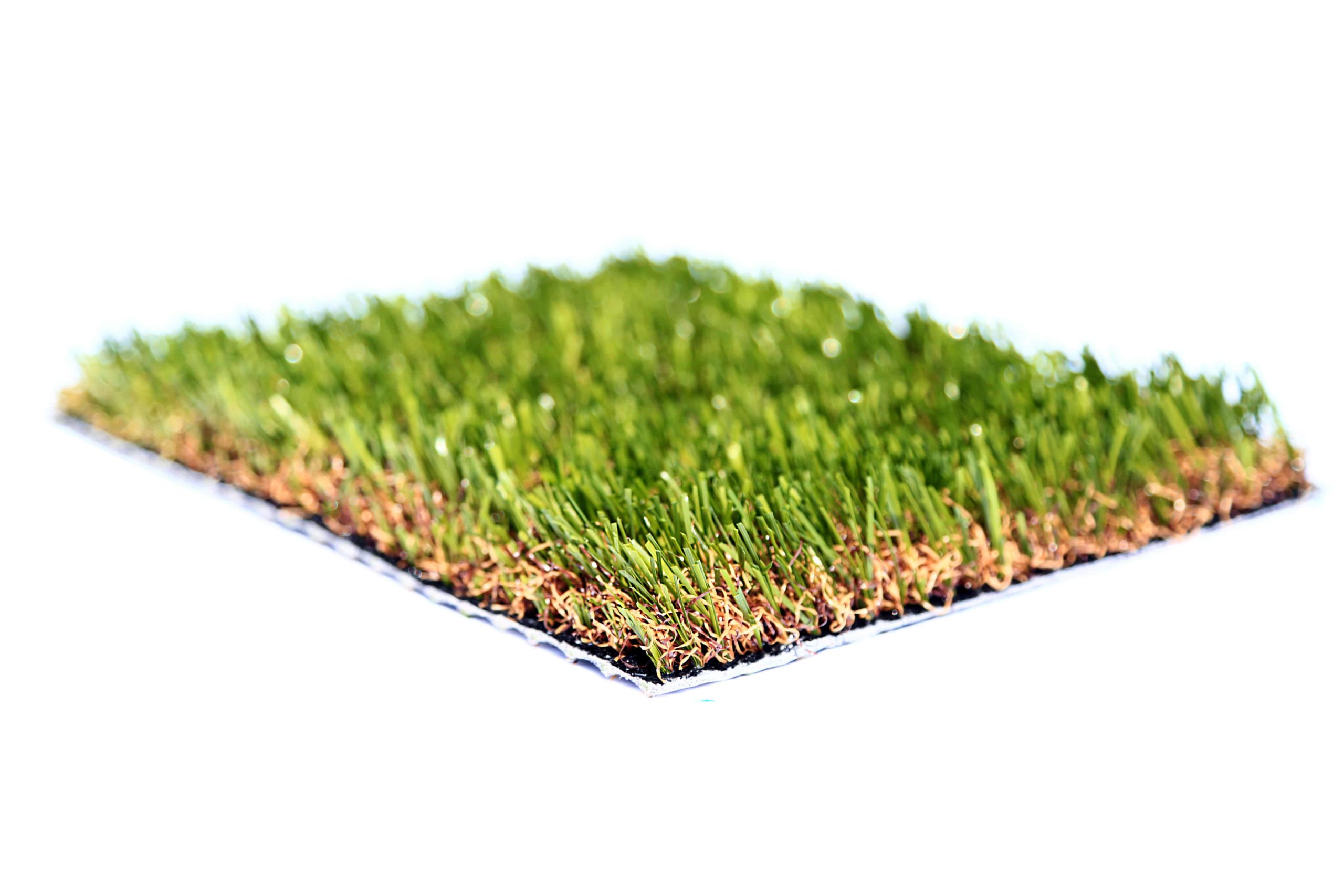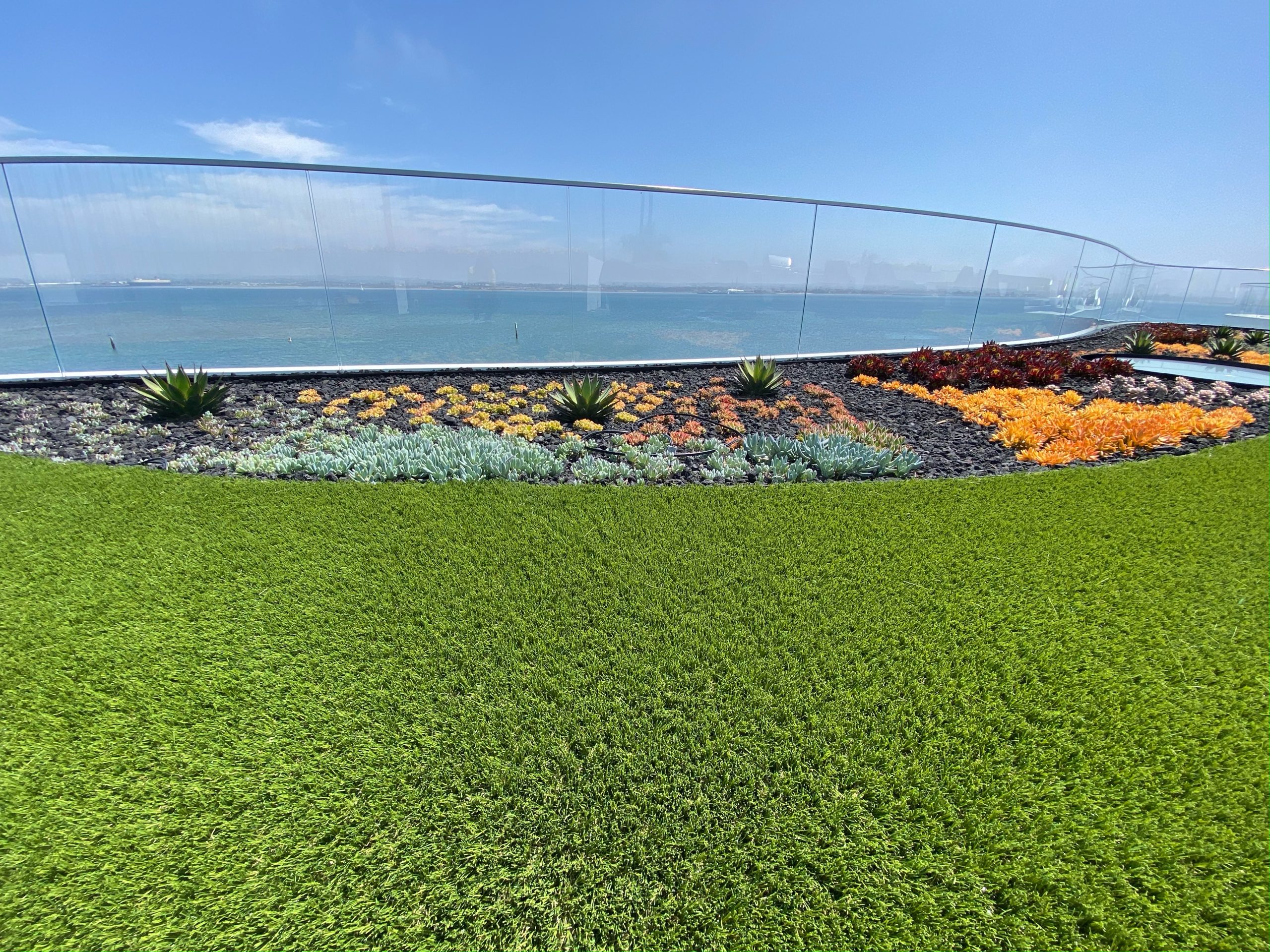The Environmental Benefits of Artificial Grass Installation
페이지 정보
작성자 Sherri 댓글 0건 조회 14회 작성일 24-12-25 13:56본문
Elimination of Dead Grass Replacement
Natural grass lawns often need reseeding or replacing after sections die, generating waste from discarded dead grass. Artificial grass, on the other hand, does not die, ensuring that no grass needs to be replaced and minimizing unnecessary waste production.
Low-Maintenance Yard
Traditional lawn care involves constant attention to weeds, grass health, and soil conditions, all of which can produce organic waste and debris. Artificial grass eliminates the need for frequent maintenance, resulting in a tidier yard and less ongoing waste production over time.
 Reduction in Grass Clippings Waste
Reduction in Grass Clippings Waste
Traditional lawns require regular mowing, leading to an abundance of grass clippings. These clippings often end up in landfills, contributing to waste. With artificial grass, mowing is no longer necessary, eliminating this source of lawn waste and reducing landfill impact.
Conclusion
Artificial grass installation offers a range of significant environmental benefits that make it a smart choice for homeowners and businesses in Clearwater. By conserving water, reducing the need for harmful chemicals, and lowering carbon emissions, artificial grass artificial grass helps create a greener, cleaner environment. Its low-maintenance nature means fewer resources are required for upkeep, making it an eco-friendly solution for those looking to reduce their environmental footprint while maintaining a beautiful, functional outdoor space.
 Enhancing Biodiversity through Artificial Grass
Enhancing Biodiversity through Artificial Grass
While natural grass lawns may support local flora and fauna, they also require intensive management that can harm the ecosystem. Artificial grass does not disrupt local biodiversity, as it doesn’t require the use of fertilizers, pesticides, or herbicides. This provides a safer environment for pollinators, insects, and other small wildlife that might otherwise be harmed by chemicals.
 By opting for artificial, property owners can create a beautiful, healthy yard without contributing to soil and water contamination. The long-term benefits include cleaner, healthier surroundings for both people and wildlife, reducing the environmental impact of maintaining a lawn.
By opting for artificial, property owners can create a beautiful, healthy yard without contributing to soil and water contamination. The long-term benefits include cleaner, healthier surroundings for both people and wildlife, reducing the environmental impact of maintaining a lawn.
 Lower Energy Consumption in Lawn Maintenance
Lower Energy Consumption in Lawn Maintenance
The maintenance of a traditional grass lawn often requires significant energy, both in terms of time and resources. Watering systems, fertilizers, and constant lawn mowing consume both electricity and fuel. With artificial grass, the need for these energy-intensive activities is eliminated, helping reduce overall energy consumption.
Choosing artificial grass for your lawn not only benefits the planet but also ensures long-term savings and a pristine yard year-round. At The Outdoor Living Pros, we are dedicated to helping you make environmentally conscious choices that enhance the beauty and sustainability of your property. Reach out to us today to learn more about how artificial grass can transform your outdoor space in Clearwater.
Less Yard Waste from Fallen Leaves
Fall can create a significant amount of leaf litter that needs to be collected and disposed of. With artificial grass, leaves and other debris can be easily cleaned without worrying about the grass underneath, leading to less waste and upkeep during seasonal changes.
 Choosing artificial grass can lower energy bills associated with lawn maintenance. It provides a more energy-efficient option for homeowners who want to make a positive environmental impact without sacrificing the beauty of their yard.
Choosing artificial grass can lower energy bills associated with lawn maintenance. It provides a more energy-efficient option for homeowners who want to make a positive environmental impact without sacrificing the beauty of their yard.
Less Lawn Waste with Artificial
Traditional grass lawns can generate significant waste, especially during lawn care routines. Grass clippings, fallen leaves, and even the need to replace dead grass contribute to waste. Artificial grass installation reduces this waste since it requires little to no maintenance beyond occasional cleaning. This reduction in waste is beneficial for both homeowners and the environment. Not only does it reduce landfill contributions, but it also ensures that your yard remains tidy and beautiful year-round, without the need for constant upkeep and waste disposal.
Artificial grass installation offers significant environmental benefits, especially in areas where water conservation is a priority. By eliminating the need for regular watering, it helps conserve water, which is especially valuable in drought-prone regions. Additionally, it reduces the use of harmful pesticides and fertilizers that can pollute local ecosystems. With artificial grass, there’s also less need for lawnmowers, leading to a decrease in fuel consumption and air pollution. It’s a sustainable choice that supports a cleaner, greener environment while providing a beautiful, low-maintenance lawn year-round.
Water Conservation with Artificial Grass
Artificial grass installation plays a pivotal role in water conservation. Traditional lawns require constant irrigation, especially during hot, dry months, which can lead to excessive water use. Artificial grass eliminates this need entirely, helping conserve millions of gallons of water annually. This is particularly beneficial in regions prone to droughts, where water conservation is a critical concern. By choosing artificial grass, homeowners and businesses can significantly reduce their water consumption.
Natural grass lawns often need reseeding or replacing after sections die, generating waste from discarded dead grass. Artificial grass, on the other hand, does not die, ensuring that no grass needs to be replaced and minimizing unnecessary waste production.
Low-Maintenance Yard
Traditional lawn care involves constant attention to weeds, grass health, and soil conditions, all of which can produce organic waste and debris. Artificial grass eliminates the need for frequent maintenance, resulting in a tidier yard and less ongoing waste production over time.
Traditional lawns require regular mowing, leading to an abundance of grass clippings. These clippings often end up in landfills, contributing to waste. With artificial grass, mowing is no longer necessary, eliminating this source of lawn waste and reducing landfill impact.
Conclusion
Artificial grass installation offers a range of significant environmental benefits that make it a smart choice for homeowners and businesses in Clearwater. By conserving water, reducing the need for harmful chemicals, and lowering carbon emissions, artificial grass artificial grass helps create a greener, cleaner environment. Its low-maintenance nature means fewer resources are required for upkeep, making it an eco-friendly solution for those looking to reduce their environmental footprint while maintaining a beautiful, functional outdoor space.
 Enhancing Biodiversity through Artificial Grass
Enhancing Biodiversity through Artificial GrassWhile natural grass lawns may support local flora and fauna, they also require intensive management that can harm the ecosystem. Artificial grass does not disrupt local biodiversity, as it doesn’t require the use of fertilizers, pesticides, or herbicides. This provides a safer environment for pollinators, insects, and other small wildlife that might otherwise be harmed by chemicals.
 Lower Energy Consumption in Lawn Maintenance
Lower Energy Consumption in Lawn MaintenanceThe maintenance of a traditional grass lawn often requires significant energy, both in terms of time and resources. Watering systems, fertilizers, and constant lawn mowing consume both electricity and fuel. With artificial grass, the need for these energy-intensive activities is eliminated, helping reduce overall energy consumption.
Choosing artificial grass for your lawn not only benefits the planet but also ensures long-term savings and a pristine yard year-round. At The Outdoor Living Pros, we are dedicated to helping you make environmentally conscious choices that enhance the beauty and sustainability of your property. Reach out to us today to learn more about how artificial grass can transform your outdoor space in Clearwater.
Less Yard Waste from Fallen Leaves
Fall can create a significant amount of leaf litter that needs to be collected and disposed of. With artificial grass, leaves and other debris can be easily cleaned without worrying about the grass underneath, leading to less waste and upkeep during seasonal changes.
 Choosing artificial grass can lower energy bills associated with lawn maintenance. It provides a more energy-efficient option for homeowners who want to make a positive environmental impact without sacrificing the beauty of their yard.
Choosing artificial grass can lower energy bills associated with lawn maintenance. It provides a more energy-efficient option for homeowners who want to make a positive environmental impact without sacrificing the beauty of their yard.Less Lawn Waste with Artificial
Traditional grass lawns can generate significant waste, especially during lawn care routines. Grass clippings, fallen leaves, and even the need to replace dead grass contribute to waste. Artificial grass installation reduces this waste since it requires little to no maintenance beyond occasional cleaning. This reduction in waste is beneficial for both homeowners and the environment. Not only does it reduce landfill contributions, but it also ensures that your yard remains tidy and beautiful year-round, without the need for constant upkeep and waste disposal.
Artificial grass installation offers significant environmental benefits, especially in areas where water conservation is a priority. By eliminating the need for regular watering, it helps conserve water, which is especially valuable in drought-prone regions. Additionally, it reduces the use of harmful pesticides and fertilizers that can pollute local ecosystems. With artificial grass, there’s also less need for lawnmowers, leading to a decrease in fuel consumption and air pollution. It’s a sustainable choice that supports a cleaner, greener environment while providing a beautiful, low-maintenance lawn year-round.
Water Conservation with Artificial Grass
Artificial grass installation plays a pivotal role in water conservation. Traditional lawns require constant irrigation, especially during hot, dry months, which can lead to excessive water use. Artificial grass eliminates this need entirely, helping conserve millions of gallons of water annually. This is particularly beneficial in regions prone to droughts, where water conservation is a critical concern. By choosing artificial grass, homeowners and businesses can significantly reduce their water consumption.
- 이전글proven online establishments USA - December 2024 24.12.25
- 다음글Top Profitable Products to Export From India 24.12.25
댓글목록
등록된 댓글이 없습니다.

